Last week, I posted about why the looming “ecological crisis” has not scared my husband and I out of having children and desiring a “big” family. This week, I thought I’d share some of the ways we try to lessen our family’s environmental impact. Also, we do recycle, but honestly, I think recycling is so low on the list of impactful things you can do. Industrial recycling is incredibly inefficient, and we should aim for both our recycling bins and our trash bins to be as close to empty as possible! Reducing and reusing are way more important, and most of my points focus on these concepts.
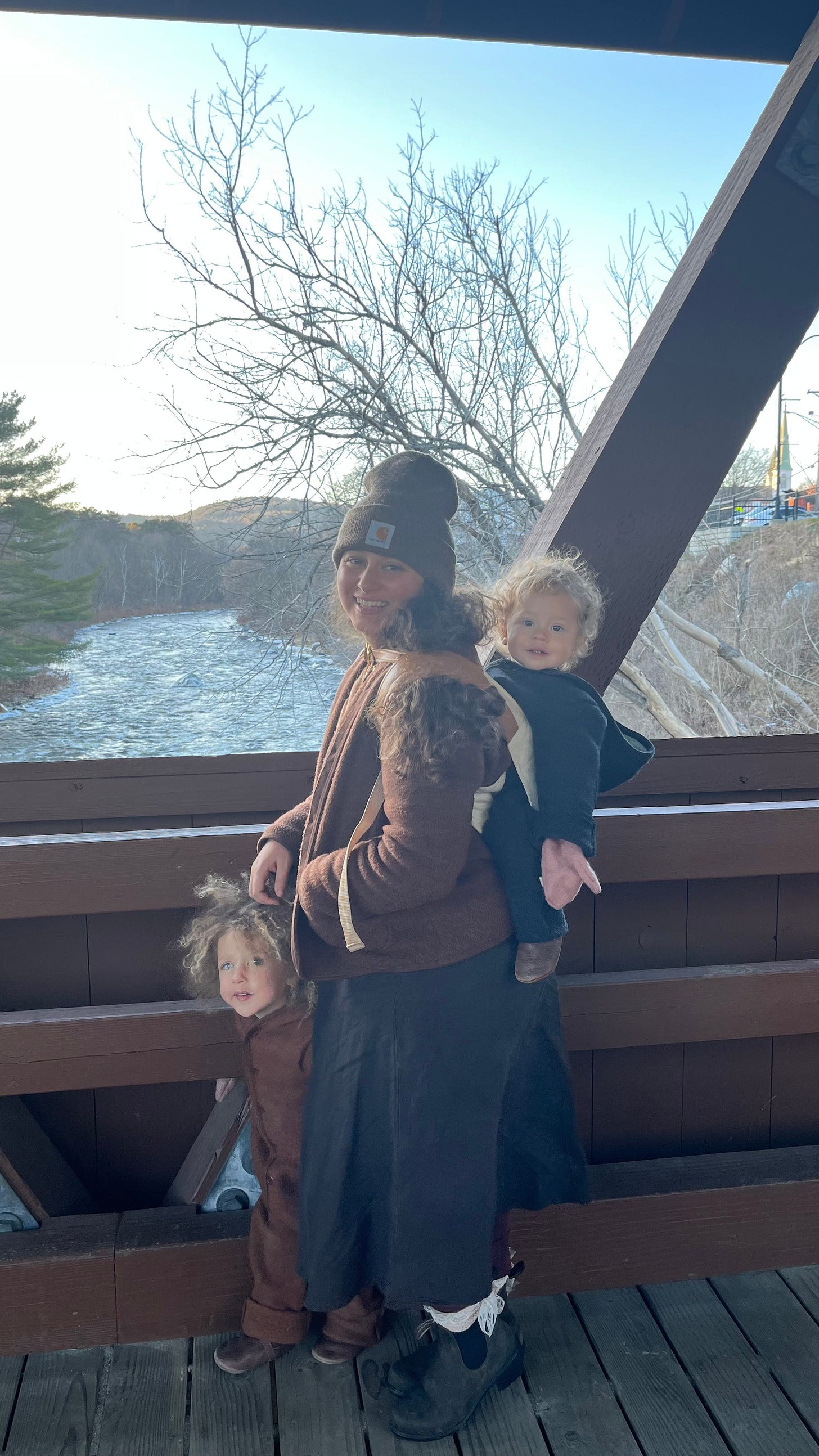
Cloth Diapers
Cloth diapering was something I was very intimidated by. With our first baby, people gifted us so many disposable diapers that we did not have to worry about it for the first three months. At the time, I was grateful to have one less thing to worry about. But once I began, at around the three-month mark, I realized it was actually very easy and I should have started earlier. With my second, I waited until she was 4-6 weeks old, and I think that was perfect. In the first few weeks, they pee and poop so frequently that you either need to have a pretty large stash or do laundry very frequently. Postpartum recovery was very hard for me, so I wasn’t interested in frequent laundry. When we did pocket diapers (microfiber and bamboo), I had a stash of about 24. When we switched to organic cotton flats, I had about 27.1 When our babies stop pooping at night, we switch to disposable night diapers, and they typically don’t need it changed until they wake up. We also use disposable diapers when we travel or if we will have a long day away from home.
I launder the cloth diapers about every 3 days. With my next baby, I would like to try a wool shell.
The typical disposable diaper can last up to 500 years in the landfill before it “decomposes.” From my understanding, objects need to be exposed to air to decompose at all, so it likely takes much longer than that if it happens at all, considering the garbage is all buried underneath other plastic garbage. Disposable diapers are also laden with toxic chemicals - imagine that being close to your baby’s private parts all day long! Obviously, we are not purists about this, but any way you can cut down on disposable diaper use can make a significant impact.
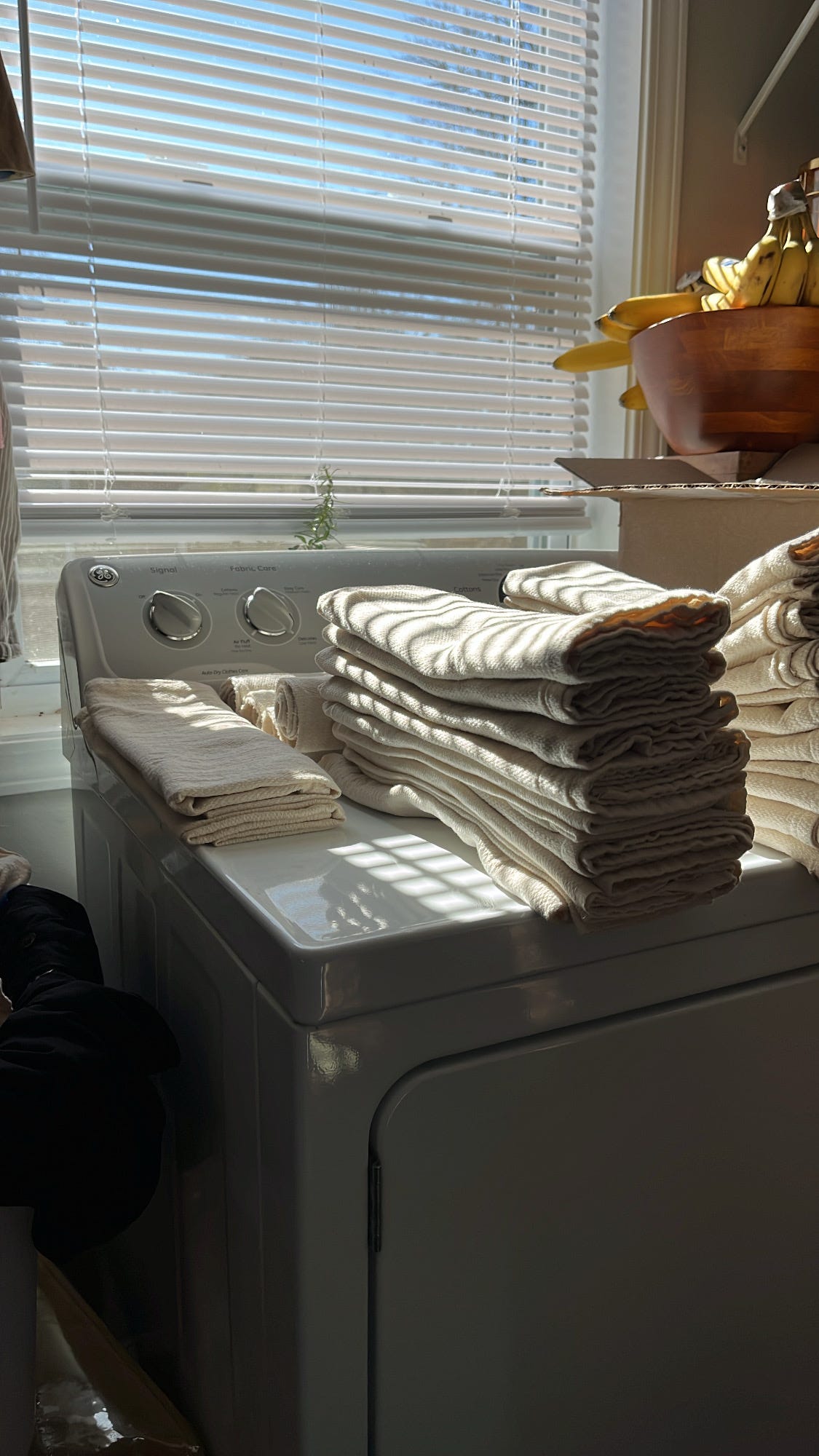
Eating Seasonally
I find this to be one of the most fun challenges of homemaking, and it’s a big motivating factor for me being a stay-at-home mom. Staying home means I have more time and energy to dedicate to creating a menu that my family will enjoy, as well as sourcing the ingredients affordably. Eating seasonally is also a huge priority for my husband, and it brings him a lot of joy when we prepare fun seasonal foods. On the weekends, he also cooks, but typically, I find the seasonal recipes for him based on whatever I’m craving!
Because of this lifestyle choice, my nearly-3 year old and 18 month old love foods like Brussels sprouts, asparagus, carrots (which they carry around the house and munch on all day), and tomatoes. My oldest turned 6 months old on Thanksgiving - her very first food was venison her grandpa hunted himself! My second turned 6 months old within a day or so of Easter, and her first food was lamb. Our girls do enjoy the occasional juicebox or chicken nugget when we are out or on special occasions, but when we are home, they expect real meals with complex and interesting flavors. They also love the farmer’s market. It is our favorite Summer family rhythm to go together each week.
Eating seasonally means that your food can be locally sourced, even from your own garden. It is also more likely to be higher in nutrients and require fewer pesticides or harmful fertilizers.
When we want to eat something out of season, we opt for the properly preserved version. You will not catch me buying fresh strawberries in February — but you will find freeze-dried strawberries and strawberry jam in my pantry! We help our kids make this connection by doing at least one u-pick outing a month at a local farm!
Eating seasonally inspires me in the kitchen, and it also keeps me accountable in prioritizing healthy and tasty meals.
Thrifting
I am not very good at thrifting — it takes time, patience, and creativity, which I feel I lack. But I try to go once a quarter. I don’t really thrift toys because our families are very generous in that department, but I do thrift clothes and books. I also have a wonderful friend who is great at thrifting, and if I pay for shipping, she will send us oodles of lovely clothes from the bins in her town!! Thank you, Emma! Thrifting meets both the “reduce” and “reuse” principles — also kids grow so fast, you can find a lot of clothes with tags still on them at the thrift store! I’ve also gotten some lovely boutique pieces at the thrift that I would have never been able to afford from their original source.
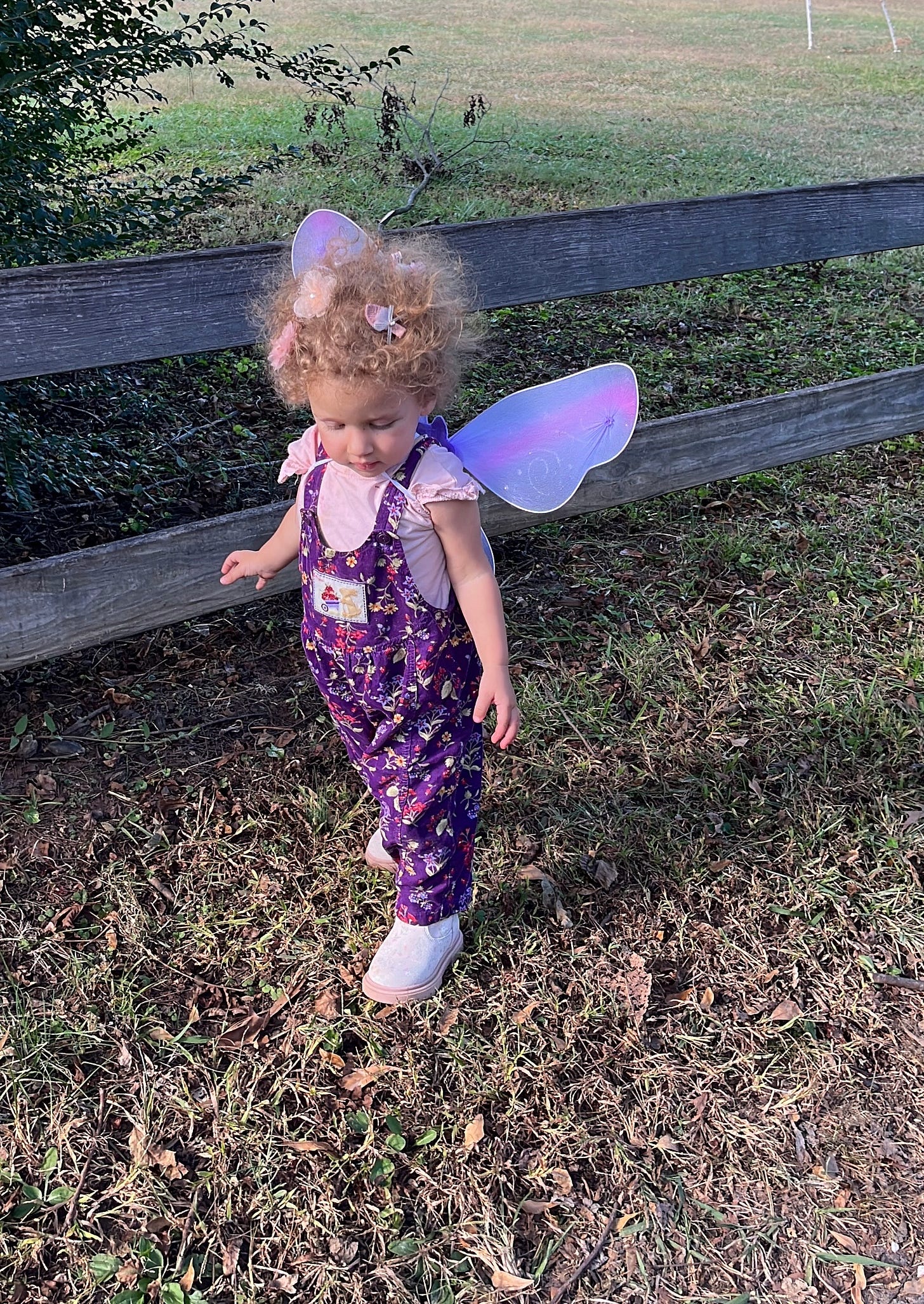
Prioritize Natural Fiber Clothes and Toys
Especially when I buy new clothes, I always try to prioritize natural fibers. For children, this mostly means cotton, though my girls do have quite a few wool pieces as well! Natural fibers are more environmentally friendly to source, and they will naturally decompose if disposed of properly. Additionally, they are easier to repurpose into rags, burp cloths, quilts, etc.
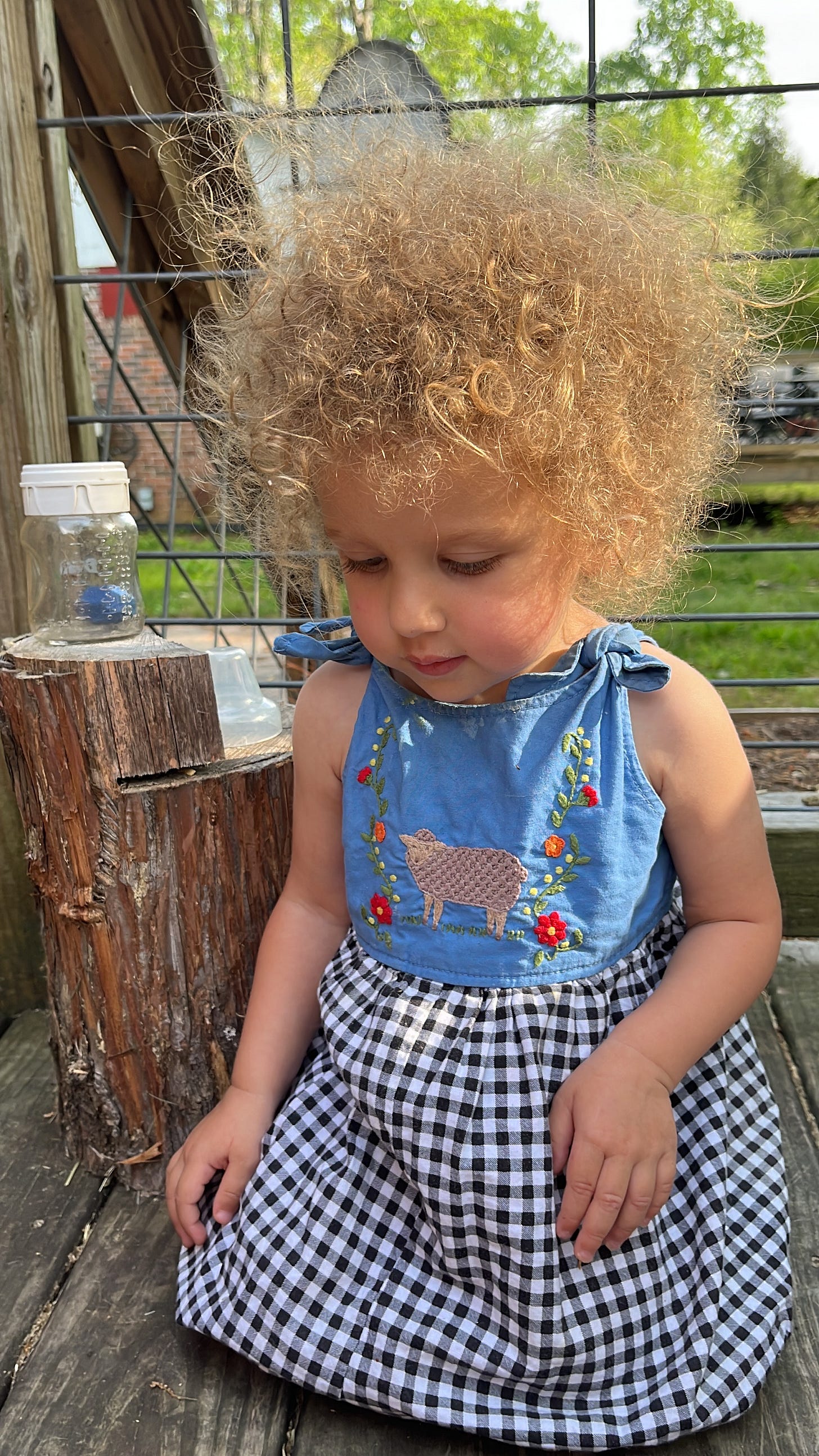
Gardening and Composting
Gardening is a great way to draw more pollinators and other critters to your living space — this means you not only get to help them out by feeding them, but you also get to enjoy looking at them! Your children will observe how all the birds, butterflies, and bees interact with the things they helped you plant - and in the process, you may just cultivate future botanists or entomologists. Gardening can also improve your yard’s soil health, and once you make your own salsa, you will never be able to buy it from the store again!
We just bought a house, so this will be the first year our family will get to have a decent-sized garden since I was a community garden coordinator, which was before my eldest was born! She is now almost 3, and I am planning a garden-themed birthday party for her because she has been talking non-stop about how she can’t wait to grow tomatoes and flowers in her garden this summer!! So cute.
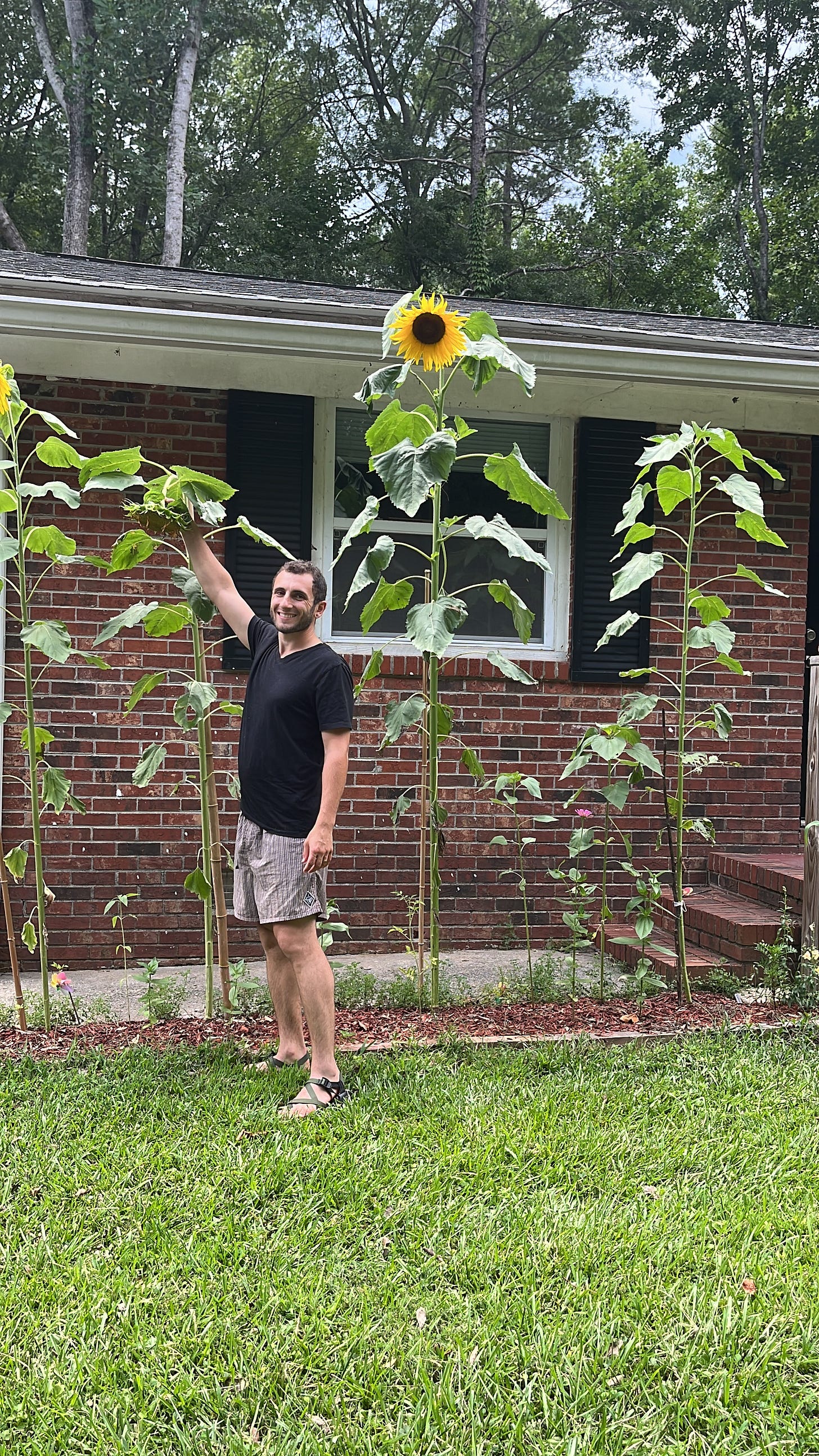
What are some things your family does to steward the earth and encourage your appreciation for the outdoors? I’d love to gather more ideas for our family. Basically, we try to avoid plastic and single use items as much as possible, but we do not stress about the occasional straw or granola bar wrapper (though one of my goals in 2025 is to make most of our snacks at home). We also try to be minimalists with our energy usage, turning most lights off during the day and turning all things not in use off. A lot of these practices also come down to saving money, which is important to us because we are a (mostly) one income household.
If you liked this post, please consider supporting me by becoming a free or paid subscriber. And let me know other topics you’d like me to cover!
We never really fully “switched”. My oldest stayed in the pocket diapers until she potty trained, and my second had the cotton diapers because her skin was more sensitive. This was the arrangement for about a year and a half. I’ve passed on most of our pocket diapers to friends, and will probably keep the rest of what I have for car emergencies. I much prefer the cotton flats system.





I love this! What a great list! Thank you so much for writing!
We used the wool shell for diapers in the flaparap style because we did elimination communication, and my friend made me these incredible boiled wool outers that I lanolinised! I've got an article on it here: https://open.substack.com/pub/guenbradbury/p/better-baby-bottom-cleaning?utm_source=share&utm_medium=android&r=4bpym1
You've covered most of the things we do so I'm racking my brains about what else! We cycle and walk most places (much easier in the town we live in than in most places!). We don't use mattresses or pillows. We have a small house so can't accumulate much stuff and we really value having space. And we only have herbivore pets!